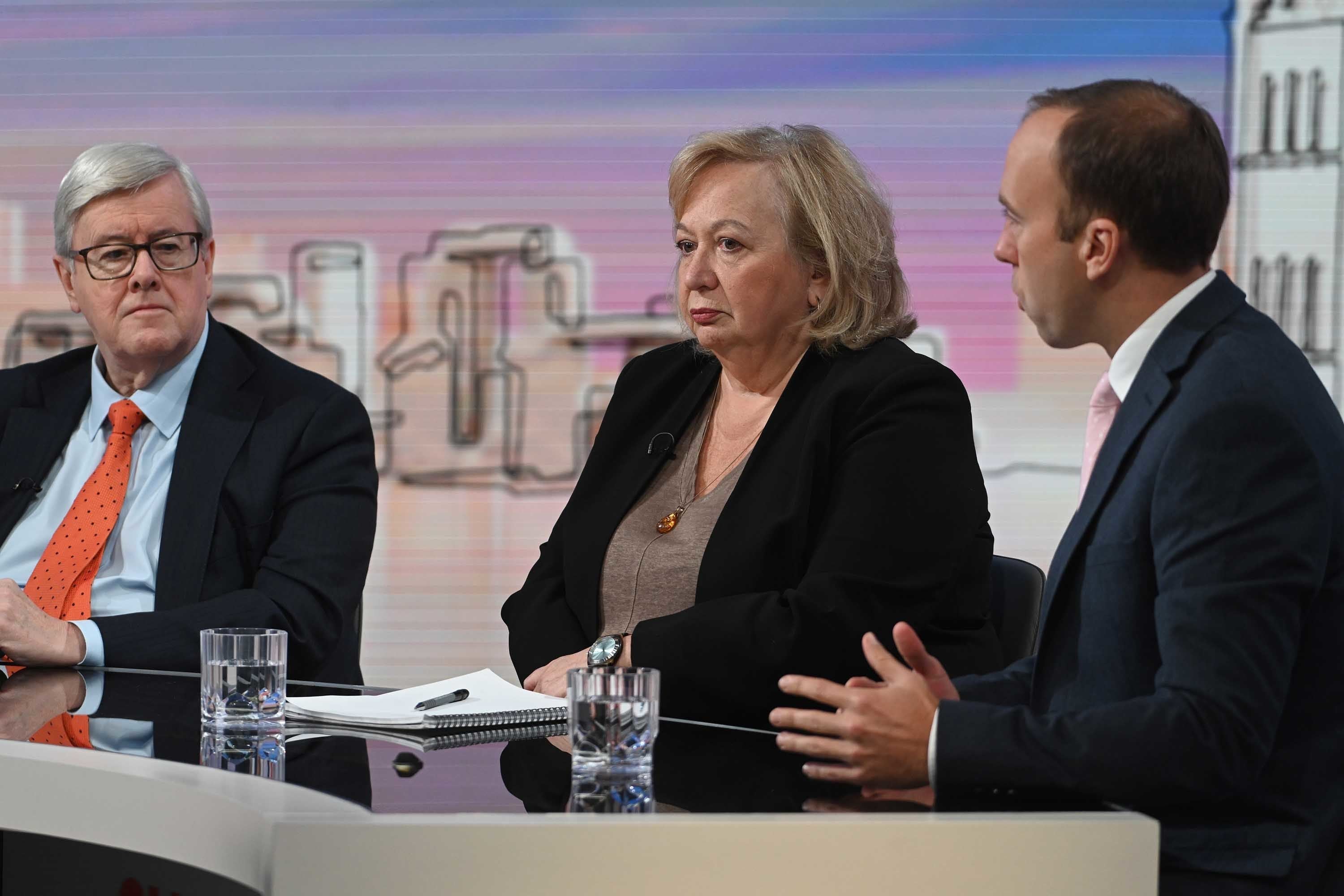NHS staff ‘are quitting to work in Tesco because it pays better’ union chief warns
Unison general secretary decries ‘dreadful situation’ for public sector workers

Vital NHS and education workers are quitting to take better-paid jobs in supermarkets, a union boss has claimed.
Christina McAnea, who represents 1.3 million Unison members, says pay and conditions were pushing staff to take less stressful work for higher wages.
“I was on a TV programme recently with the chairman of Tesco [John Allan] and he was actually apologising for the fact that his company, his shops, are taking on ex-NHS workers because people are leaving the NHS to go and work there because they can get more money,” she told Committee Corridor, the podcast from House of Commons select committees.
“That’s a dreadful situation to be in where people can leave what is a stressful job as a healthcare assistant or a nurse and go and get more money because you can go and work in a supermarket.
“It’s not that it’s an easy job to work in a supermarket – it’s a different level of stress and you can get more money for it.”
“That just can’t be good for society, that we’ve got people leaving our essential services to go and work in retail because they can get more money,” she added.
“Almost 30 per cent of NHS employers now provide foodbanks for their staff, and another 20 per cent are planning to set them up,” she said, adding that employers were reporting rising levels of staff absence just before payday.
Ms McAnea appeared with Mr Allan on the BBC’s Sunday with Laura Kuenssberg on 15 October.

In a discussion about the cost of living and the devastating economic impact of Liz Truss’s mini-budget, the Tesco chair noted that he had given employees two pay rises so far this year – though the rises have not kept up with inflation.
The basic hourly rate of pay in Tesco will rise to £10.30 on 13 November, £10.98 in London. This exceeds the national living wage of £9.50 for over 23s.
The Tesco rate outstrips that for NHS staff including healthcare assistants, who bathe and feed patients, occupational therapy workers and domestic support workers.
Labour MP Ian Mearns MP, who sits on the Education Select Committee, agreed with Ms Mcanea that change is needed urgently to improve the conditions of workers in essential sectors.

Turning to teaching assistants, he said “pay is obviously the biggest concern” for the often part-time classroom workers.
“Recruitment and retention is obviously important from the respect of job satisfaction, and staff that I speak to in the education sector quite often love their jobs, but literally are really struggling with the cost-of-living,” he said.
“At the rates of pay that they’re receiving, [they] are finding it very, very difficult to stay in those roles.”
Full time teaching assistants can expect to earn a starting salary of around £18,300 a year, according to jobs website Prospects.ac.uk.






Join our commenting forum
Join thought-provoking conversations, follow other Independent readers and see their replies
Comments